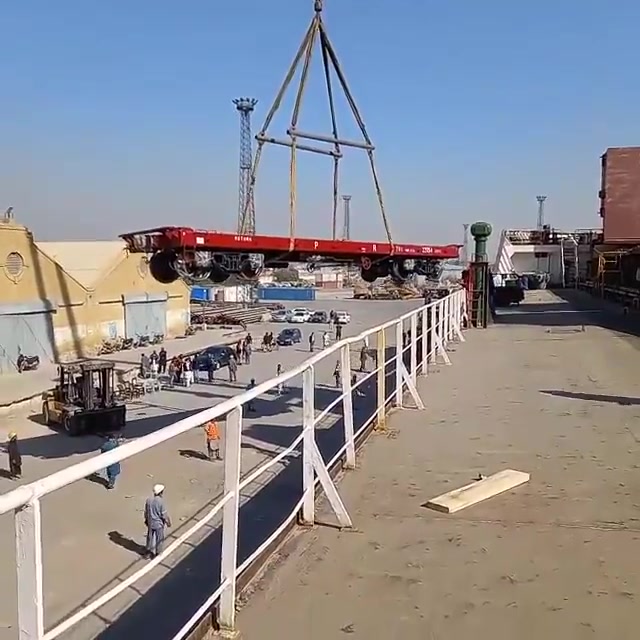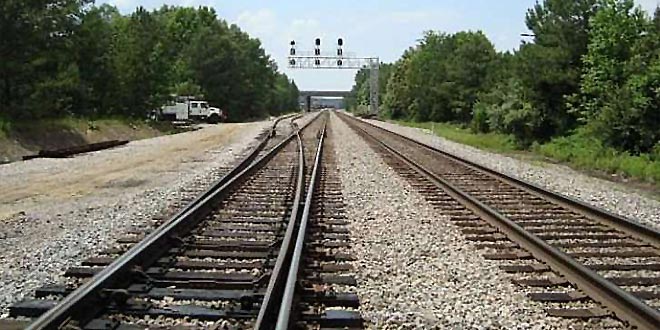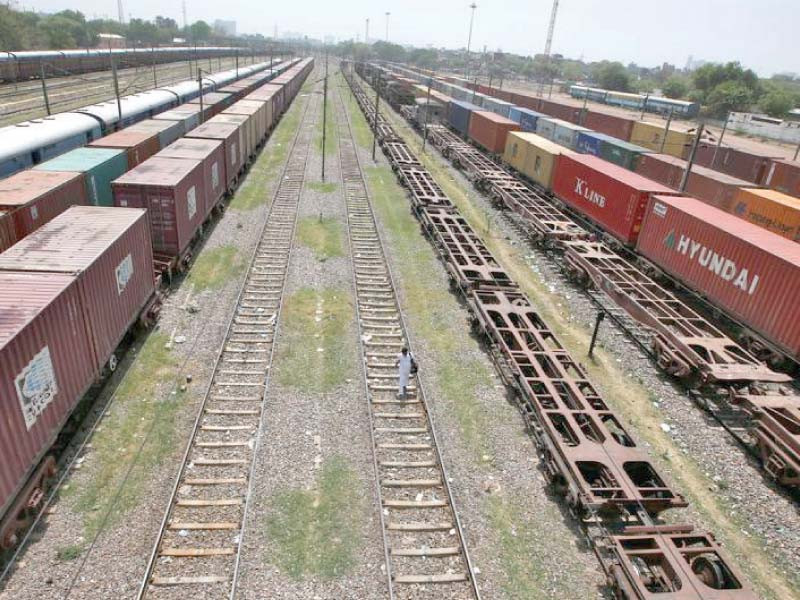.,.,.,
ML-I groundbreaking by early 2024
PM seeks reform strategy for Pakistan Railways to maximise benefits of ML-I
Shahbaz Rana
November 16, 2023
It was decided that no fence would be constructed along the ML-I route, which would help save cost. However, it will have a direct impact on the rail speed.
The government on Wednesday announced the groundbreaking of the Mainline-I (ML-I) project by early next year, which would be constructed after a drastic revision in its scope that reduced the estimated cost by one-third to $6.7 billion to make it commercially viable.
The decision was made during a meeting chaired by interim Prime Minister Anwaarul Haq Kakar, who instructed officials to try to perform the groundbreaking before the end of his government’s term on February 8.
The PM sanctioned the revision in the project with directives to present its revised PC-I to the competent forum for approval in the current week.
The meeting was told that modalities for ML-I were in final stages and the project’s groundbreaking would be performed by early next year, according to a statement issued by the PM Office.
The project will be completed in two phases. In the first phase, a 930-kilometre-long rail track will be laid from Karachi to Multan. Also, the railway infrastructure damaged in the 2022 floods will be upgraded as per international standards.
In the next phase, a 796km-long rail track will be laid from Multan to Peshawar in line with requirements of the future. In 2017, Pakistan and China signed a five-year framework agreement for construction of the ML-I project. The framework has now been extended for another five years.
However, the sources said that the groundbreaking would be contingent on firmed-up financing for the project as so far financing details had remained uncertain. A financing plan will be discussed by both sides next month.
The in-principle understanding is that China will provide 85% of the project cost in the shape of loan while Pakistan will arrange the remaining amount.
Sources said that the project cost was being revised to $6.67 billion, a reduction of $3.2 billion, or one-third, through a reduced scope and design aimed at making it commercially viable.
During the visit of PM Kakar, both countries signed an addendum to the ML-I project, which was part of the China-Pakistan Economic Corridor (CPEC), reducing its scope and design.
It was decided that no fence would be constructed along the route, which would help save cost. But it will have a direct impact on the rail speed. In the absence of fencing, the operational rail speed will be 120 km to 140 km per hour but in project design the speed may remain at 160 km, according to the sources.
At an event held this week, Chinese Ambassador Jiang Zaidong outlined three key points for future cooperation: consolidation of the current phase of CPEC, deepening cooperation in agriculture and mining, and improving people’s livelihoods through small but impactful projects.
Jiang highlighted the need for consolidation with the completion of projects like ML-I and Karachi Circular Railway. The ambassador did not mention any road projects. According to PC-I of the ML-I project, approved in November 2022, a 1,733km-long route will be rehabilitated and 482 underpasses, 53 flyovers, 130 biker bridges and 130 stations will be constructed along the route. But this plan will now undergo drastic changes.
PM Kakar desired the “formulation of a comprehensive reform strategy for Pakistan Railways to maximise benefits of the ML-1”, said a press statement.
Pakistan Railways does not have the fiscal muscle to take a $5.8 billion Chinese loan on its books, as the entity remains highly mismanaged like other state-owned enterprises (SOEs).
Caretaker Finance Minister Dr Shamshad Akhtar on Wednesday chaired a meeting of the Cabinet Committee on State Owned Enterprises (CCOSOEs). The State-Owned Enterprises (Ownership and Management) Policy, 2023 was re-submitted to the committee for review, after incorporation of the feedback received from members of the committee.
The committee reviewed the changes incorporated into the draft and recommended a revised policy for approval from the cabinet, according to the Ministry of Finance.
It added that the SOE policy marked a crucial step towards enhancing the governance and operations of state-run companies, aligning with the broader objectives outlined in the State-Owned Enterprises (Governance and Operations) Act, 2023.
The IMF has set a condition to get the policy approved and make a central monitoring unit effective before the end of November.
The CCOSOEs made certain changes in the policy pertaining to the board of directors of SOEs, human resources, code of conduct, fit and proper criteria and public disclosure.
After approval of the policy from the cabinet, Finance Minister Akhtar and Adviser to the PM on Establishment Ahad Cheema will have to resign from some of the boards of public sector enterprises where they sit as members. Their continuation will be a violation of the new policy.


 www.facebook.com
www.facebook.com

 www.facebook.com
www.facebook.com




